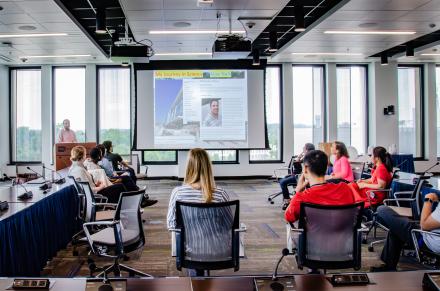About the CCB Fellowship Program
The CCB Fellowship Program awards outstanding clinical and basic science researchers who are interested in studying topics aligned with our mission and who hold a strong desire to collaborate with labs in the IRP. In addition to monetary support, CCB Fellows will have access to professional development activities including training on grant-writing, career planning, oral presentations, and leadership skills. Additional activities will include a seminar series designed by CCB Fellows that will feature presentations from both fellows and outside speakers.
In the past, applicants have been asked to submit a research proposal, CV, and mentor letter. Examples of fundable projects include studies of brain circuitry involved in the generation of compulsive behaviors (both anatomically or functionally), development of new tools or animal models to study these circuits and behaviors, and development of behavioral tests in research animals or humans to trigger, measure, and/or manipulate compulsive behaviors.

Fellowship Contacts
To stay up to date with the application cycle, sign up for the listserv or send an email with a signup request to Roland Bock.
Yavin Shaham, Ph.D.
Senior Investigator, NIDA
yshaham@mail.nih.gov
Lauren Atlas, Ph.D.
Investigator, NCCIH
lauren.atlas@nih.gov
Roland Bock, M.Sc.
Scientific Program Manager
roland.bock@nih.gov
Applications for Fellowship
- Applications for the current cycle are now closed. Sign up for the listserv to learn about the next application cycle.
